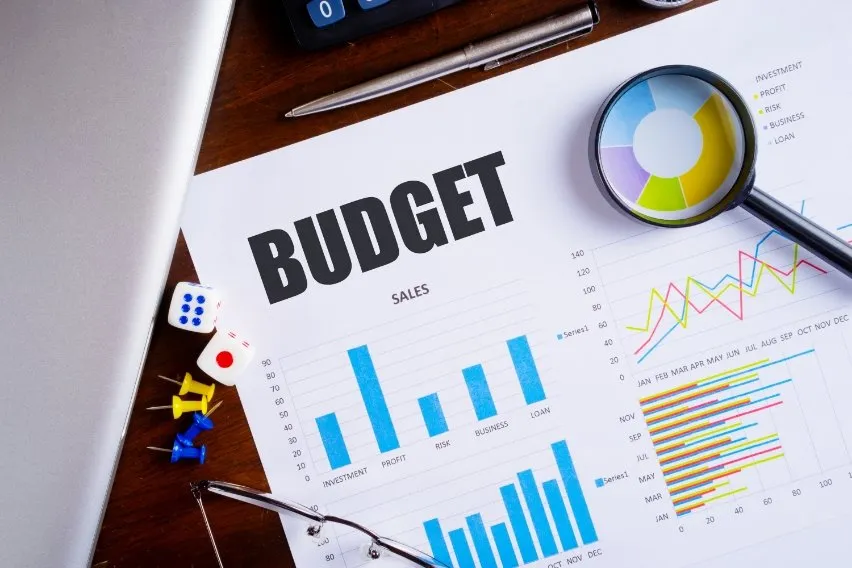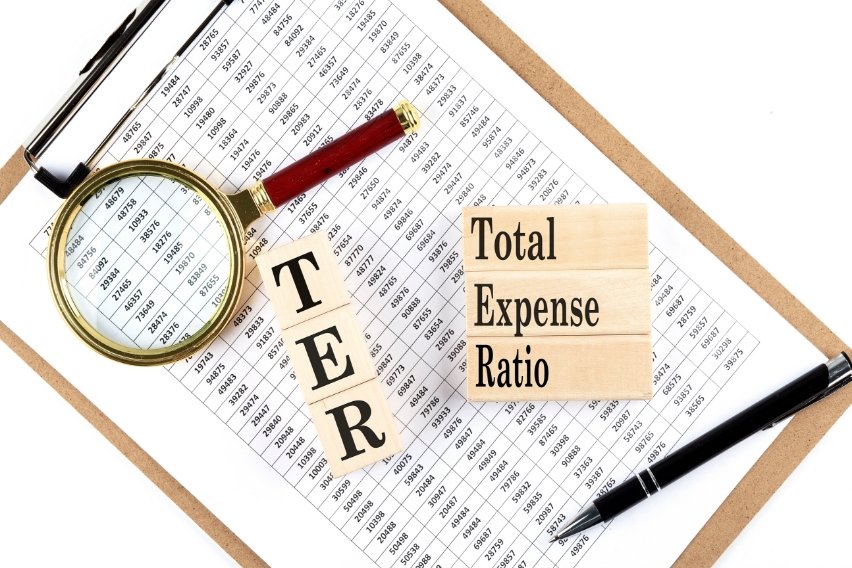What Is Budgeting? Importance, Types, Pros & Cons

Have you ever tried to put together a financial plan to help you save money? Maybe you have heard the term business budgeting at work. Budgeting is an effective way to help ensure you don’t overspend.
So what exactly do you need to know and where should you start? We put together this guide to break down the importance of budgeting. We’ll also cover some of the different types and the biggest pros and cons. Read on to learn more!
Table of Contents
What Is Budgeting?
Budgeting is the process of putting a plan together to help you not only save money, but also know how to spend it. A budget can ensure you’re not overspending and you can cover necessary expenses. It’s often done monthly and you can re-evaluate it periodically.
In business, budgeting works in a very similar way. You can estimate specific revenue and any upcoming expenses. This helps avoid overspending and keep cash flow in check. Budgeting can be used personally and professionally. And it can be for a single person, a business, or individual departments within a company.
Managing monthly expenses effectively can make a big difference. It helps you prepare for an unpredictable event or save up for a big-ticket item in the future. Keeping a budget can also ensure you don’t take on any unnecessary debt. Without a budget, you could find yourself with unexpected expenditures. This could lead to difficulty reaching business goals.

Importance of Budgeting
Creating a personal budget or an operational budget for your business is important. Budgeting can help you avoid poor spending habits and lead to your savings goals.
Here are some of the main reasons that budgeting is important.
- It helps communicate the goals of the company and ensures transparency.
- It ensures employees understand the targets they need to reach. This leads to achieving business goals.
- It can break down sales targets and production targets as quantifiable goals.
- Without it, money coming in can be spent unnecessarily, leading to overspending.
- It helps achieve long term financial goals and savings goals and monitor expenditures.
- It promotes an accurate process for tracking expenses and efficient spending habits.
- It advances the financial health of a company.
A budget can provide insights into the money coming into a business and also going out. You can anticipate business costs and prepare accordingly with an effective spending plan.
Types of Budgeting
Budgeting is an overarching term to help monitor spending and stay within certain financial constraints. There are a few different types of budgets that can get used depending on your situation. For example, there are base budgets, traditional budgets, activity-based budgets, and kaizen budgets.
Let’s take a closer look at how some of these budgets work.
Base Budgets
Base budgets are a basic type of budget that often surround going concerns. Prepared by the organisation, they will break down different revenues and expenses. These budgets can be common for businesses with cash profits and tend to lean towards cutting every possible expense.
Yet, it’s important to include the necessary expenses that are needed to ensure the business stays on track in the future. Base budgets tend to focus on ongoing operating costs instead of focusing on short-term projects.
Traditional Budget
The main purpose and biggest advantage of a traditional budget is simplicity. As the same suggests, a traditional budget will only include basic methods. Because it saves time, traditional budgeting is very popular.
If you can be incremental in your approach, you can determine how much you may need to spend. The general idea is to look back and see how you have spent your money in the past. Then, you can make adjustments as needed for the future.
Zero-Based budgets
The zero-based budget is created from scratch, as the name implies. It doesn’t take previous experiences into account. This aids an organisation’s development of creative techniques for carrying out specific tasks. Zero-based budgeting determines different funding based on the efficiency of different programs.
It doesn’t consider previous budget history. This means that you account for and justify the different expenses for each new period of the budget.
Kaizen Budget
A kaizen budget involves regularly improving your processes to help reduce different costs. Creating and following this type of budget helps lead to long term improvements. Typically, you would incorporate the expected cost reductions into the budget itself.
Using this budgeting approach helps reduce overall costs. But, it requires a lot of planning. The biggest challenge, however, is that some improvements might happen in a shorter period than the budget allocates.
Activity-Based Budgets
Activity-based budgeting is an effective and thorough way to break down different costs. Management might look at the costs incurred and try to come up with solutions to reduce them. This can happen by limiting various activity levels or even removing unnecessary ones completely.
One of the biggest reasons a business might use an activity-based budget is to increase profits. It can be a great approach if the business doesn’t have historical costing data. In the end, you can see every cost associated with each operational activity. You can determine which ones are limiting profits and make any adjustments if needed.
Advantages of Budgeting
Effective budgeting helps both individuals and businesses track financials. This can allow the opportunity to plan for long-term expenses and short-term expenses. Plus, you can monitor new and existing operational costs.
In many businesses, budgets are important, as they need to be shared with stakeholders. This can be employees or a governing body such as a board of directors. A budget shows insights into the financials of the business to potential investors.
When you create a budget, you can monitor bills, investments, and services. You can make sure your hard earned money isn’t spent unnecessarily. But within all of this, there are some other main advantages to budgeting.
Setting Sales Goals
The budget can take into account some costs that come with having a sales team or sales procedures. You could also include how much revenue you anticipate the company will bring in over a specific period. With these in mind, you can set sales goals that complement the spending plan. This would allow the company to make adjustments as necessary in the future.
Achieving Financial Goals
Every business should set financial objectives. Meeting them can indicate if a business had a successful year. Without a budget in place, a company might not be aware of how operations are going. Instead, the business might learn that it lost money at the end of the year.
Because there is a better understanding of where the money is coming in and going out, a budget can help a business and its stakeholders stay on track to meet their goals.
Attracting New Investors
Investors want proof that a company is properly allocating its funds. A well-structured budget demonstrates organisation and dedication to the company. Investors may feel more confident in their decision to invest if they can see budget sheets. This helps them understand how much cash the company expects to bring in and what its expenses are.
Preparing for Emergencies
In business as in personal life, it’s critical to prepare for the unexpected. You can avoid having to take money away from other aspects of running your business by creating an emergency fund with the aid of a budget.
Accurately Preparing Taxes
A budget can help you prepare the necessary tax information. And it doesn’t matter if you do your business taxes yourself or hire a professional. For instance, you could spend money on tax software or hire someone to file your taxes on a regular basis. Their process will be accelerated by your budget, potentially saving you money and time.
Making More Informed Business Decisions
Many businesses will have to make important choices that will affect the flow of money in and out of business. With a budget, you’ll find it simpler to make important choices like how much you can afford to raise salaries. You can also determine whether team members can receive bonuses and what benefits you can provide employees.
Plus, you can also explore opportunities to expand business operations. Making some of these financial and business decisions can be difficult without a budget to reference.
Creating a Financial Statement
Having enough money is going to determine how you build things like a sales budget or operating budget. A financial statement might be an income statement, a balance sheet, or a cash flow statement. But no matter the type of financial statement, having accurate information is key.
Disadvantages of Budgeting
Making a budget is crucial to ensure your business has the resources it needs to run effectively. A budget, however, occasionally has drawbacks that prevent your business from growing to its full potential.
Finding the Right Process
It may be difficult to decide how to allocate your finances because there are multiple ways to create a budget. Making sure your budget is effective for your business requires you to choose the appropriate process.
Before selecting the best way, you need to test out several different approaches. To select the best approach the first time, conduct some research before making your decision.
Overspending
Naturally, if you have a large budget, some departments might feel pressured to spend the entire amount they’re allocated. This may result in overspending, which will raise your budget for the future.
Make it clear that whenever you create a new budget, you’ll take into account the current needs of your team rather than historical trends. You could also implement a “use it or lose it” policy. By doing this, it may be possible to prevent people from overspending.
Certain Constraints
Your departments need to stick to the budget they create. It may cause people to feel restricted as a result. By leaving some wiggle room in your budget, you can overcome this challenge.
This can assist you in planning for circumstances where one department may require more funding than you had anticipated. Similarly, be honest about how much cash each department will require.
Overlooking Other Factors
You might concentrate primarily on what will make your business the most money when making a budget. Even though it’s crucial, you also need to take other things into account when making your budget.
For instance, it may have a big impact on how satisfied your employees are. Employee turnover rates may be high at your business. This is a result of workers feeling they have few resources available to them at work.
Ultimately, this could result in higher recruitment costs. You might be able to increase your profits by taking into account factors other than pure profit.

Key Takeaways
Individuals, businesses, and governments use budgets to help estimate potential income and expenses. Budgets are financial plans for a specific time period, typically a year. Budgeting plays an important role in enhancing the financial success of a business.
Corporate budgets are necessary for achieving maximum productivity. They can help with resource allocation. Corporate budgets can also help with goal-setting, outcome evaluation, and emergency planning.
Personal budgets are helpful in both short-term and long-term financial management.
FAQs on Budgeting
What Is a Budget Example?
A simple budget example is organising personal expenses and income. You can include things like rent costs, vehicle insurance, and outstanding debts. Then, you can ensure your cash flows will be able to cover expenses, without overspending.
What’s a Good Budget Method?
A common budget method is to divide your income into spending categories. You could break portions into what you need and what you want, and allocate other amounts for paying off debts.
What Is the Impact of a Budget?
The impact of a master budget can help monitor variable costs and save for long term financial goals. It works differently compared to a savings account but there is no maximum amount. It’s what works best for your individual situation.
How Do You Manage a Budget?
Managing a budget can come in different forms. It could be regularly reviewed to find continuous improvements. Or, it could be monitoring spending to ensure you have enough money to cover different costs and expenses.
RELATED ARTICLES

 What Is Capital in Accounting? Importance, Types, & Examples
What Is Capital in Accounting? Importance, Types, & Examples Materiality Concept in Accounting: Definition, Importance & Example
Materiality Concept in Accounting: Definition, Importance & Example Creative Accounting: Definition, Types & Methods
Creative Accounting: Definition, Types & Methods Total Expense Ratio (TER): Definition, Formula & Limitations
Total Expense Ratio (TER): Definition, Formula & Limitations Accounting Records: Definition, Types & Examples
Accounting Records: Definition, Types & Examples Departmental Accounting: Definition, Types & Methods
Departmental Accounting: Definition, Types & Methods